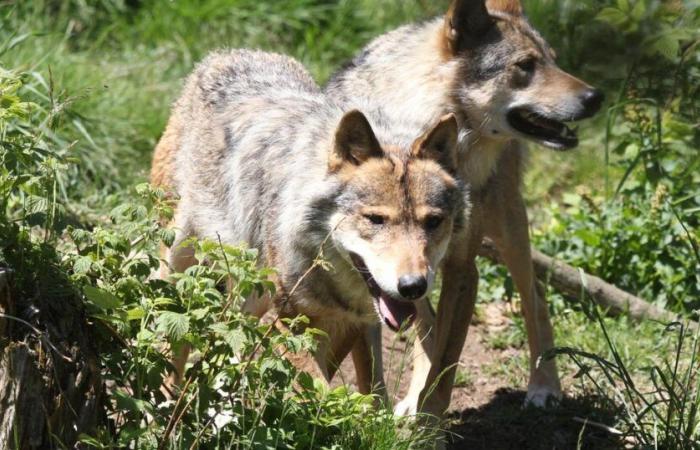The protection of the animal is threatened with downgrading. The signatory countries of the Berne Convention are debating the status of this species.
Many NGOs denounce the potential change in the status of the wolf. The latter is the subject of an examination on Tuesday in Strasbourg by the signatory countries of the Berne Convention. Under pressure from farmers, many European countries are leaning towards making it easier to cull the canine, whose numbers have increased rapidly in recent years. The standing committee of the Berne Convention, whose aim is to ensure the protection of wildlife, is considering downgrading the species from “strictly protected” has “protected”according to an amendment proposal submitted at the end of September by the European Union.
“We will not be able to start hunting wolves without any framework, but a declassification would make it possible to generalize the possibility of shooting and killing wolves, according to rules which will have to be determined nationally”summarizes for AFP the program director of WWF-France, Yann Laurans. Wolves can be killed under very specific conditions to protect herds, a provision already implemented in France via exemptions.
Also read
“We know there are some”: the wolf continues to prowl in the Calanques of Marseille
In its proposal, the EU reports a growing population, reaching 20,300 individuals in 2023, mostly in the Balkans, the Nordic countries, Italy and Spain. An expansion which would be at the origin of difficulties of “coexistence with human activities, particularly due to damage to livestock, which has reached significant levels”according to Brussels. Since the beginning of November, many French farmers have denounced attacks on their animals as well as inaction by the State regarding the authorization of defensive shots.
“The risk of downgrading this status is to weaken or even cause the decline of this species in Europe”warns Yann Laurans, before recalling that the wolf had completely disappeared from France a century ago. Furthermore, destabilize “very precise social organization” what a pack by sporadic shooting risks creating “more disordered behavior” of this towards the herds, according to him.
“No positive consequences”
A potential downlisting of the wolf would not have “no positive consequences on the livestock of breeders in France and Europe”assures the co-founder of the Wolf Observatory, Jean-Luc Valérie. “There is only one viable solution: let elected officials manage the situation on a regional or even local scale, and for the latter to establish in their territory people trained on the subject, who can inform worried breeders about potential attacks”he says.
In a letter addressed at the end of November to the secretary of the Convention, Mikaël Poutiers, several NGOs point out a proposal “widely considered illegal, lacking scientific justification and violating the principles of democratic participation”. “By weakening the species which is the summit of the European ecological system, we risk weakening the overall health, already quite weak, of the ecosystem”supports Yann Laurans. The estimate for the number of wolves in France in 2023 stood at 1,003 individuals, down 9% over one year. Around 20% of the population is slaughtered each year.
During a visit to the Livestock Summit at the beginning of October, French Prime Minister Michel Barnier estimated that the new official assessment of the number of wolves in France, expected by the end of 2024, could represent potential “key moment” to increase slaughter. If the amendment to the Berne Convention is adopted, it will enter into force in countries that voted in favor of it three months later. On the contrary, if a third of the countries object, the proposal will be canceled.
The Berne Convention is made up of the 46 member states of the Council of Europe, with the exception of San Marino, as well as four African states: Burkina Faso, Morocco, Senegal and Tunisia.






